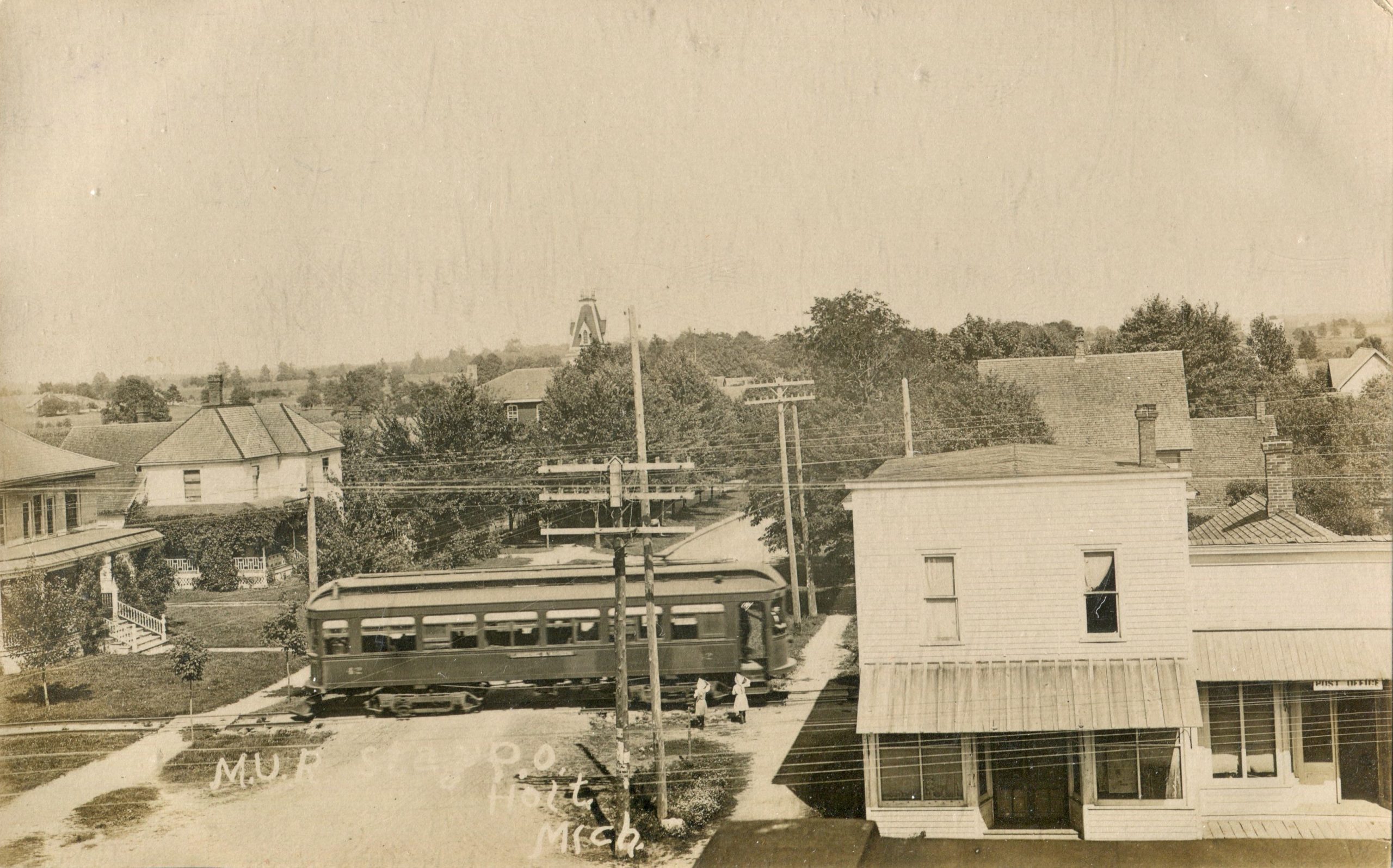This historic photo shows an interurban electric railway car passing through Holt as they did regularly from 1909 to 1929. This was a seemingly happy and prosperous time, though the year 1918 brought the conclusion of a deadly World War and the Spanish Flu pandemic which killed nearly 2% of Ingham County’s population, a proportion comparable to the hardest-hit areas in the state. The pandemic’s peak was October 1918, which took 157 Ingham County residents’ lives. Holt was not particularly hard hit. Late in 1918, the State Board of Health established strict quarantine parameters for affected families. Some schools in Ingham County were affected with teachers falling ill, forcing the closure of rural schools. In nearby Mason, a temporary closure of schools, churches, theaters, and some businesses was enacted in October 1918 to slow the spread of influenza. Another response came out of Lansing, in which a group assembled a county-wide effort to offer home nursing and hygiene classes. The pandemic wound down by the summer of 1919. After such a tragedy, a brighter period arose in June 1919 when Michigan became the third state to ratify the 19th amendment, granting women the right to vote.
To learn more, check out the Holt, Michigan: A Slice of History Facebook page, or www.holthistory.org/history.


